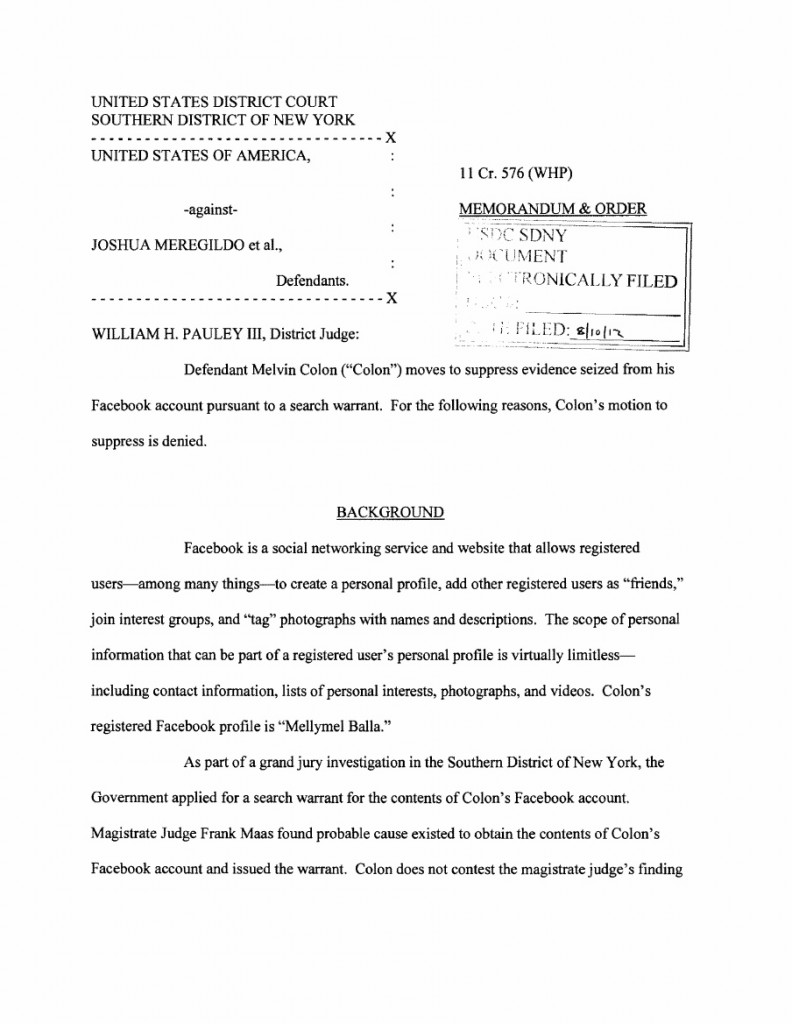US District Judge William Pauley III just made a ruling that the FBI, along with a slew of other law enforcement agencies are permitted access to Facebook profiles, provided a “friend” gives permission for that access.
You can view the actual ruling here:
 This verdict has been uncovered as a result of a recent New York City racketeering trial. In the trial, an accused suspect, Melvin Colon, made an attempt to hide evidence which was discovered on Facebook and eventually led to his indictment.
This verdict has been uncovered as a result of a recent New York City racketeering trial. In the trial, an accused suspect, Melvin Colon, made an attempt to hide evidence which was discovered on Facebook and eventually led to his indictment.
The prosecution-worthy evidence was obtained via an informant who allowed investigators access to Colon’s Facebook profile. Color and his lawyer argued that this action violated his Fourth Amendment rights (against unreasonable searched and seizures) – however, the claim was overturned by Judge Pauley. To rationalize it, the Judge simulated the act of gaining Facebook access to that of tapping a phone in the case that one person on the phone conversation has given law enforcement permission to listen in.
Although this practice has been ruled unconstitutional in the past, the judge nonetheless used the example to back up his dismissal of Colon’s argument that his rules had been violated. Consequently, the information that the cops obtained from his profile was used to then procure a search warrant for the rest of Colon’s account.
This is not the first event to spurn interest in the role of social media when it comes to law enforcement and the question of what is or is not constitutional. In an article on gigaom.com last month, Jeff John Roberts discusses a New York Judge’s ruling that “tweets are no different from words shouted in the street” which was followed by an order of that judge for Twitter to release one user’s account for investigation purposes.

